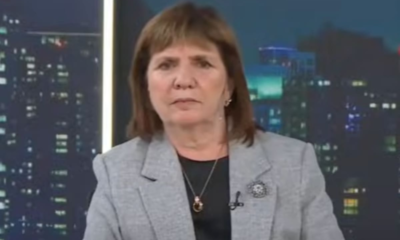INTERNACIONAL
A weakened Hezbollah leads some in Lebanon to talk of peace with Israel as US pushes sides together
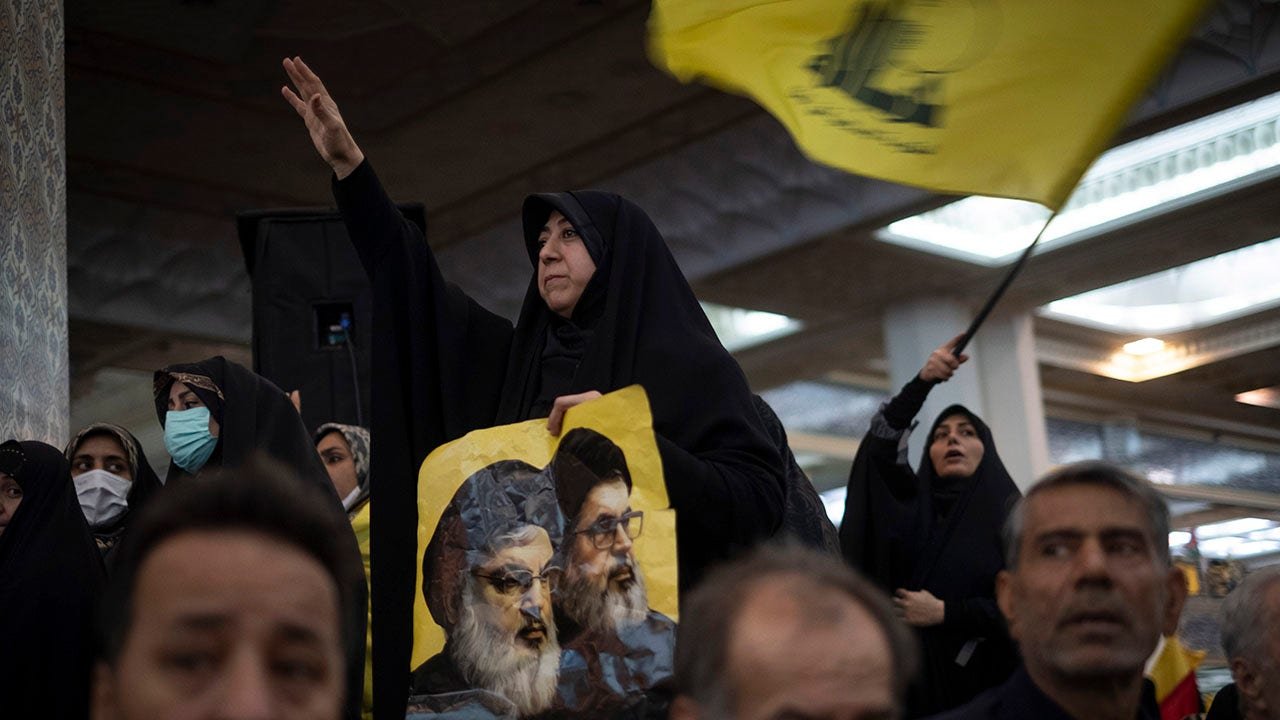
Since Israel’s near annihilation of Hezbollah’s terror leadership, and the backing of the Trump administration, whose special envoy to Lebanon has made clear the U.S. goal of limiting the power and influence of the Iran-terror proxy, the winds of change are slowly blowing over Beirut.
«Thanks to Hezbollah being weakened and defeated after the war with Israel, we are finally in a position to have this conversation about peace with Israel,» Rami Naim, Lebanon affairs journalist and analyst for Jusoor News, told Fox News Digital. «In the past the intelligence investigated me and took me to jail because I said we want peace with Israel, but now I say it openly, yes, we want normalization, and yes, we want peace with Israel without fear.» Naim was personally attacked by Hezbollah last year for his outspoken views.
The weakening of Hezbollah, Iran’s proxy, and the election of Joseph Aoun as Lebanon’s president in January 2025, represents a turning point in the country’s political trajectory. After more than two years of political deadlock, Aoun’s election was seen as a victory for the anti-Hezbollah camp, and has seemingly made the shift in public opinion regarding peace with Israel more palatable.
LEBANON’S NEW PRESIDENT STRIKES A NATIONALISTIC TONE AMID REGIONAL SHIFTS, FURTHER WEAKENING OF HEZBOLLAH
An IDF information chart showing how it decimated the Hezbollah chain of command in recent strikes. (IDF Spokesman’s Unit)
Touting the U.S. president, Naim said, «We believe Trump will put things back on track and work toward peace, aiming for a major peace deal between Lebanon and Israel, which will require increased pressure on Iran.»
Interviews conducted by Jussor, a pan-Arab media outlet, have highlighted that many Lebanese citizens are now willing to consider normalization with Israel. One Lebanese man, interviewed on camera with his face showing, shared his hope: «I believe a day will come when there will be normalization with Israel. It will take time, but it will happen eventually.»
Another interviewee echoed similar sentiments: «Israel wants peace. They don’t want war. They are cleaning things up so war doesn’t happen, and we want peace too. We’re exhausted.»

Lebanese President Joseph Aoun meets with Morgan Ortagus, U.S. deputy special envoy for Middle East Peace, in Beirut on Feb. 7, 2025. (Lebanese Presidency/Handout/Anadolu via Getty Images)
Morgan Ortagus, U.S. deputy special envoy for Middle East Peace, has emphasized the necessity of disarming Hezbollah to stabilize Lebanon and pave the way for peace in the region.
In an interview with Al Arabiya earlier this month, she described Hezbollah as a «cancer» within Lebanon that must be removed for the country to have any hope of recovery. She said, «When you have cancer, you don’t treat part of the cancer in your body and let the rest of it grow and fester; you cut the cancer out.» Ortagus also criticized Iran for fueling regional instability and dragging Lebanon into conflicts it did not seek. She noted, «The government of Lebanon didn’t want to go to war with Israel. It was on Oct. 8, 2023, that Hezbollah and Iran decided to get into the war… people were forced into a war that nobody wanted to be in.»
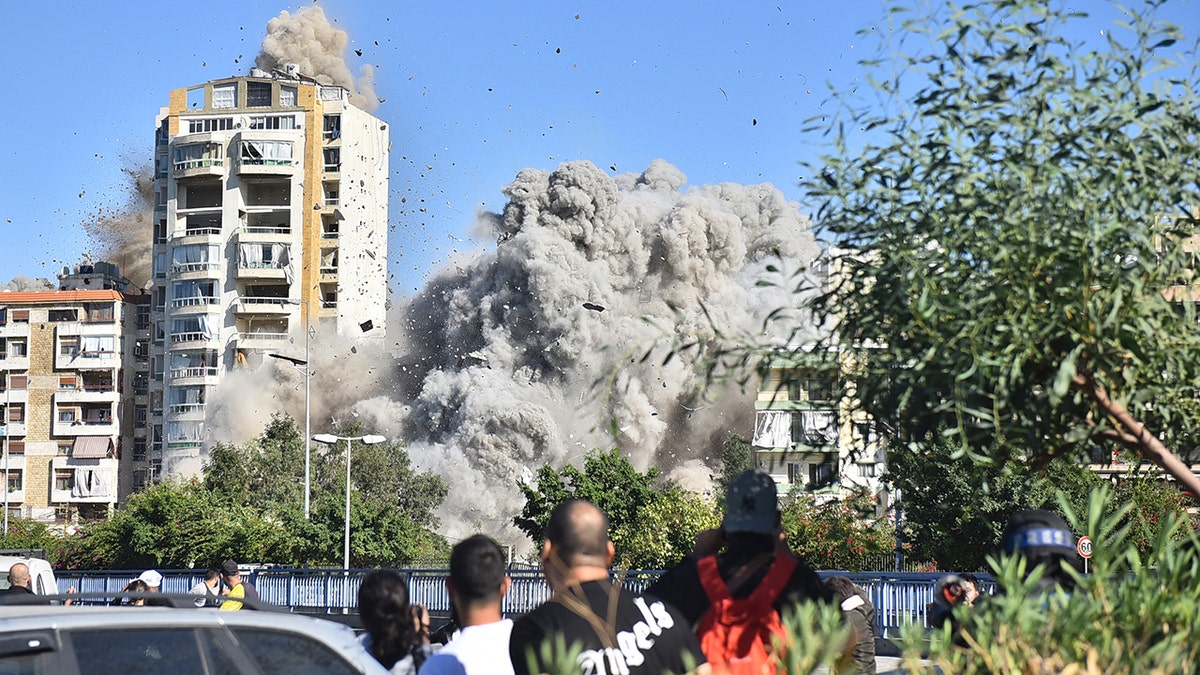
Smoke rises after an Israeli airstrike targeting a Hezbollah stronghold in a southern suburb of Beirut on Oct. 22. (Fadel Itani/AFP via Getty Images)
«We are grateful to our ally Israel for defeating Hezbollah,» Ortagus said at a news conference in Beirut’s southeastern suburb of Baabda after a meeting with Lebanese President Joseph Aoun, the Associated Press reported.
Naim said that while the public may be ready for peace, it is the Lebanese political elite that must take action. «We need America to keep pressure on Lebanon’s corrupt politicians, who have enabled Hezbollah to rebuild its military capabilities… These politicians must publicly endorse peace. It’s not just activists and journalists who should be saying it. The decision-makers must step forward.»
ISRAEL DEGRADES IRAN-BACKED HEZBOLLAH TERRORISTS IN SPECTACULAR PAGER EXPLOSION OPERATION: EXPERTS
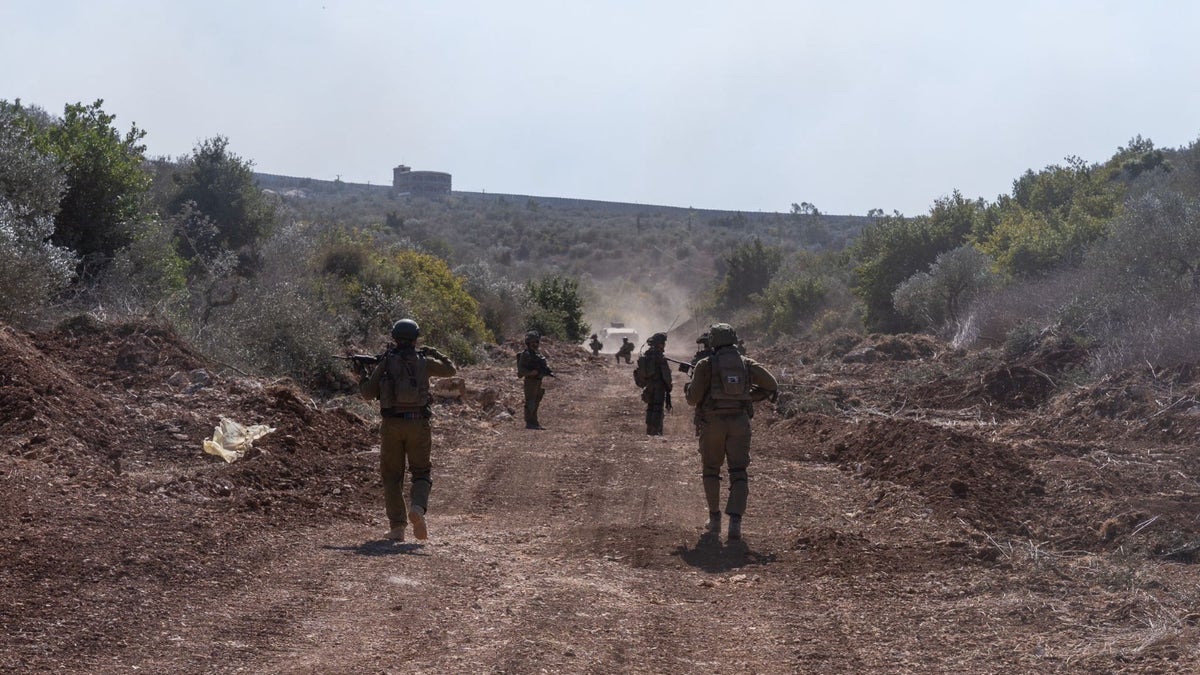
The IDF says its «soldiers are continuing to conduct limited, localized, targeted raids in southern Lebanon, eliminating Hezbollah terrorists and dismantling terror infrastructure and weapons stockpiles both above and below ground.» (IDF Spokesman’s Unit)
Naim’s call for international intervention underscores the continued importance of U.S. influence in Lebanon’s political direction. «We have suffered under the Biden and Obama administrations, as well as those who have made compromises and deals with Iran behind our backs, disregarding our interests,» Naim said.
«During Trump’s first term, there was significant pressure on Iran, which had posed aggression in the region. However, when Trump left the White House, Iran rebuilt its capabilities and grew stronger. Now, we have big hopes for Trump’s second term. His return to the White House would change the equation. What makes us optimistic about Trump is that he fulfills his promises and conducts negotiations from a position of strength, not weakness.»
While there is growing support for peace with Israel, the issue of Palestinian refugees in Lebanon remains a significant hurdle. One man interviewed by Jussor News pointed out, «I believe the whole region is heading toward peace. But we have our demands – you can’t have 500,000 Palestinians living here, then the Israelis come make peace and normalization, and leave them all here with us.»
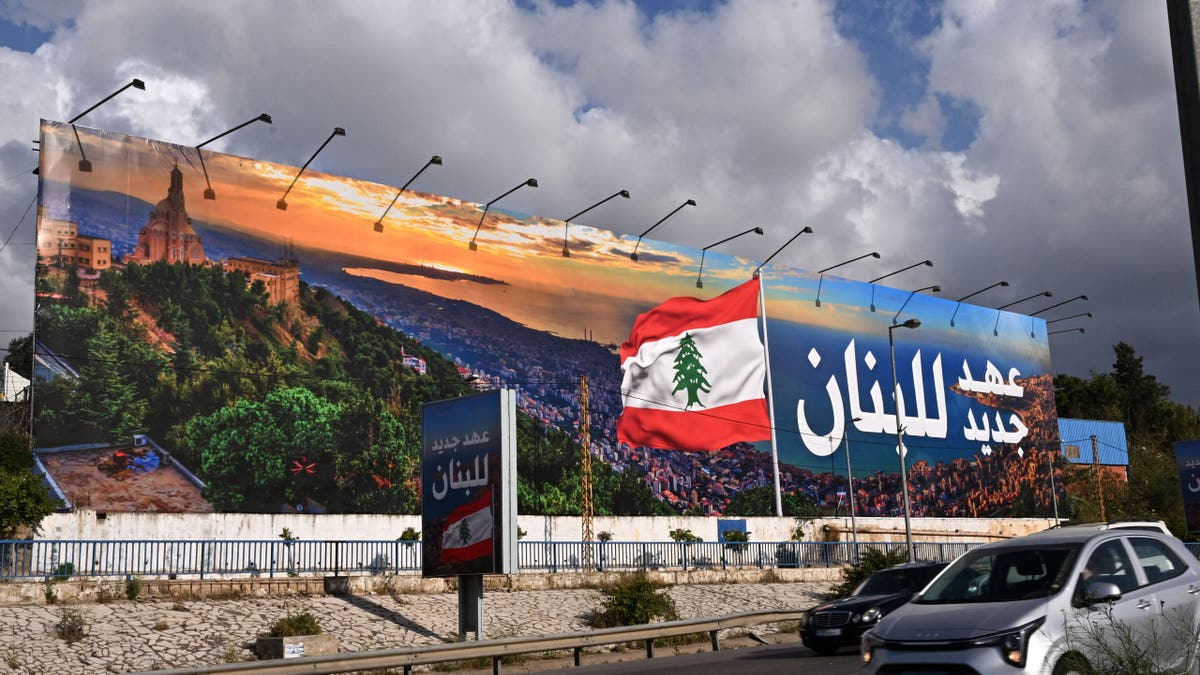
Commuters drive past a newly-installed billboard bearing the image of a Lebanese flag and a statement that reads in Arabic «Lebanon a new era,» on the road leading to Beirut’s Rafic Hariri International airport on April 10, 2025. (Joseph Eid/AFP via Getty Images)
Another woman told Jussor: «We are for peace in Lebanon. Not fighting other people’s wars which are not in Lebanon’s interests. Neutrality, as our patriarch said: enough already. We shouldn’t be looking for excuses or saying, ‘We want to liberate Palestine’ while we keep destroying Lebanon. The Palestinians told us, ‘Relax, we don’t need anything from you.’»
CLICK HERE TO GET THE FOX NEWS APP
«The Lebanese people are divided, but not into two equal parts,» said Naim. «The majority of the Lebanese people today are supportive of normalization and peace with Israel. This is no longer a taboo in Lebanon. Lebanese citizens can say today, ‘I am supportive of peace and normalization because I have suffered from these failed wars. The Israelis want peace, and we want peace. We want to live in peace. So it’s a win-win situation.’»
INTERNACIONAL
Por qué algunas personas duermen poco y no experimentan consecuencias en la salud

Dormir entre siete y nueve horas diarias se considera la recomendación básica para garantizar el buen funcionamiento físico y mental. Sin embargo, según reportó Knowable Magazine, existe un grupo minoritario de personas que apenas requieren cuatro o seis horas de sueño cada noche y no muestran consecuencias negativas para su salud. Estos individuos, denominados “natural short sleepers” (dormidores cortos naturales) , desafían la visión tradicional sobre la cantidad de descanso que necesita la mayoría de la población.
La comunidad científica, liderada por el neurólogo Louis Ptáček y la genetista Ying-Hui Fu, ambos de la Universidad de California, San Francisco, ha identificado que la razón de este fenómeno radica en la genética.

Los estudios de estos investigadores permitieron detectar varios genes asociados al sueño corto y eficiente, entre los que destacan DEC2, ADRB1, NPSR1 y GRM1. Las personas portadoras de ciertas mutaciones en estos genes parecen tener un sueño más eficiente, procesando en menos horas lo que a otros les lleva casi el doble de tiempo.
A diferencia de quienes sufren privación crónica de sueño, los short sleepers no experimentan afectaciones cognitivas, metabólicas ni inmunológicas, de acuerdo con los resultados recogidos por Knowable Magazine. Resisten el estrés, muestran una alta capacidad de recuperación y, en algunos casos, suelen ser personas energéticas, optimistas y posiblemente con una mayor longevidad, como sugiere la literatura científica reciente.
Este fenómeno contradice el modelo propuesto por Alexander Borbély en los años 70, que plantea la alternancia entre ritmo circadiano y presión homeostática de sueño. La existencia de este grupo evidencia que aún quedan aspectos por descubrir sobre la función y regulación del sueño.
El neurólogo Louis Ptáček destaca que, a pesar de dedicar un tercio de la vida a dormir, la naturaleza y el propósito real del sueño continúan siendo un enigma.

El sueño se comprende hoy como un fenómeno dinámico esencial para el cerebro y el cuerpo, que permite reponer energía, eliminar residuos y consolidar recuerdos. La privación crónica se asocia a deficiencias de memoria, trastornos metabólicos, enfermedades cardíacas y fragilidad inmune. La reducción de las horas de descanso, incentivada con la aparición de la bombilla eléctrica, es particularmente notable en Estados Unidos, donde aumenta la cantidad de personas que duermen menos de cinco horas diarias.
Los avances en genética han permitido localizar variantes asociadas a este patrón. La mutación DEC2 fue la primera identificada, tras estudiar a una familia cuyos miembros despertaban temprano y se sentían completamente recuperados tras solo seis horas de descanso. En modelos animales, esta mutación generó una menor necesidad de sueño y mayor producción de orexina, hormona que promueve la vigilia.
Actualmente, se han identificado siete genes relacionados con el sueño corto natural. La mutación ADRB1 incrementa la facilidad para despertar y prolongar la vigilia; otra variante en el NPSR1 posibilita dormir poco sin deterioro cognitivo relevante; también se hallaron alteraciones en GRM1 relacionadas con una gestión más eficiente del sueño.
Las personas que duermen poco y se mantienen sanas parecen inmunes a las consecuencias negativas del insomnio clásico y además muestran una conducta ambiciosa, resiliente y tolerante al dolor. Algunas investigaciones citadas por Smithsonian Magazine consideran incluso que podrían disfrutar de una esperanza de vida mayor que el promedio.
Frente a estos hallazgos, científicos como Ptáček proponen incluir un tercer elemento al modelo tradicional del sueño: el impulso conductual. Este impulso explicaría cómo ciertos individuos superan las barreras biológicas y cumplen con sus tareas pese a dormir menos. Otra hipótesis apunta a que sus cerebros terminan los procesos de recuperación y limpieza con mayor eficiencia en menor tiempo.

El trabajo de Phyllis Zee, directora del Centro de Medicina Circadiana y del Sueño en la Universidad Northwestern, se centra en la calidad del descanso. Investiga si los dormidores cortos concentran fases más reparadoras y aceleran la eliminación de residuos cerebrales. En línea con esta visión, Fu comenta: “Sea lo que sea que su cuerpo necesita hacer durante el sueño, pueden hacerlo en poco tiempo”.
El equipo de Fu halló que los genes del sueño corto natural mejoran la capacidad para eliminar sustancias tóxicas vinculadas al deterioro cerebral.
Aunque se han detectado mutaciones que brindan resistencia a los efectos adversos de dormir poco, persiste la incógnita sobre el modo exacto en que alteran la eficiencia del sueño. Para encontrar respuestas, Fu y Ptáček examinan la actividad cerebral de los dormidores cortos, aunque la pandemia de Covid-19 ralentizó el progreso de sus estudios.
Existen también mutaciones que provocan un requerimiento superior de horas de sueño. Sin embargo, estas personas enfrentan obstáculos sociales, pues los horarios laborales y educativos suelen oponerse a sus ritmos biológicos, lo que aumenta el riesgo de privación y problemas de salud mental.
Aunque la genética es decisiva, el entorno también influye en cuántas horas necesita dormir una persona. Investigar los mecanismos de eficiencia abre la puerta a nuevas estrategias para proteger la salud general. Por ejemplo, en el laboratorio de Zee se empleó ruido rosa para estimular la memoria sin modificar la duración del sueño, logrando mejoras cognitivas en los participantes.
Los especialistas recalcan que cada individuo debe adaptar sus hábitos de descanso a sus propias necesidades. Ptáček rechaza los estándares rígidos y compara la recomendación universal de ocho horas con suponer que toda la población debe tener una sola altura.
Dormir bien no tiene una fórmula única: la genética y la eficiencia pueden marcar la diferencia.
INTERNACIONAL
WATCH: Lawmakers break down how billions in the ‘big, beautiful bill’ boost Trump’s immigration crackdown
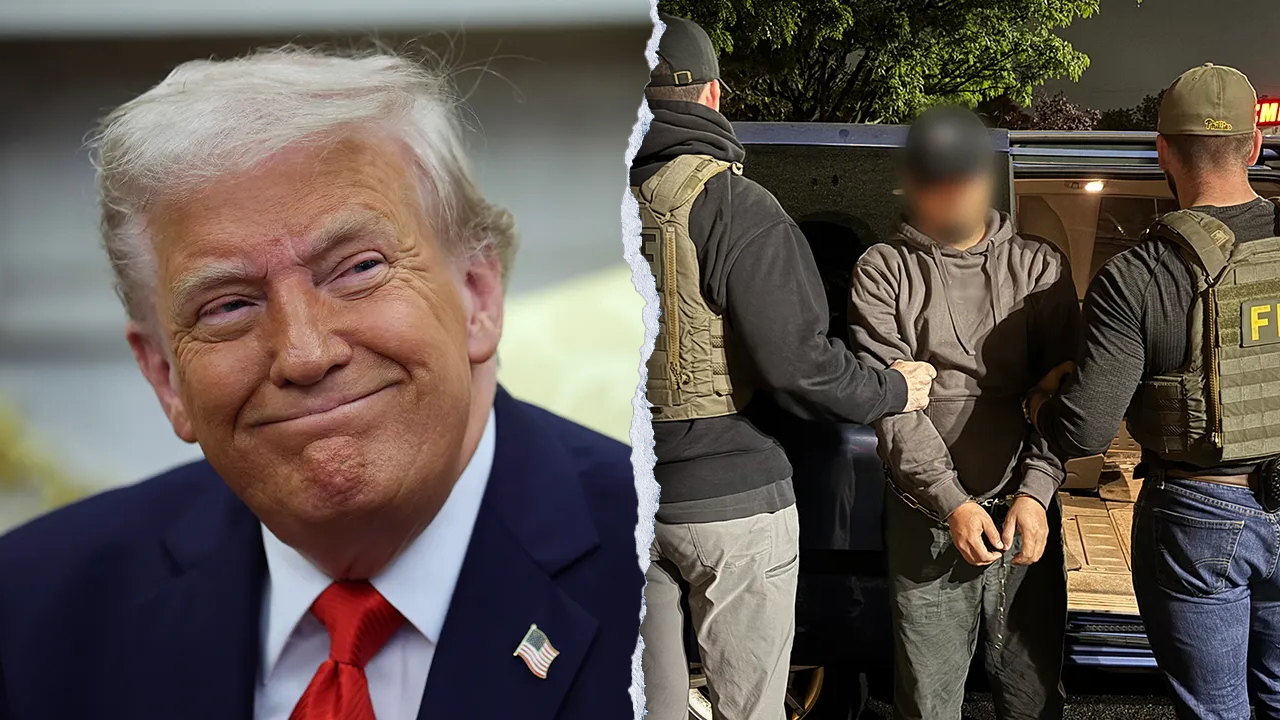
NEWYou can now listen to Fox News articles!
President Donald Trump’s «big, beautiful bill» was signed into law earlier this month, with Republican lawmakers celebrating a broad range of GOP victories in the massive tax-and-spending legislation.
That includes billions of dollars aimed at Trump’s crackdown on illegal immigration in the U.S. Nearly $30 billion is marked for Immigrations and Customs Enforcement (ICE) alone, and $45 billion is going toward building up detention facility capacity.
House Republicans who spoke with Fox News Digital last week hailed that funding boost, even as critics of the Trump administration accuse the White House of taking too heavy a hand on the issue.
«Having that money to now be able to work on the wall along the southern border, to be able to hire more agents, to pay them more, to invest in the technology, to patrol and secure the border – it is hugely important,» Rep. David Kustoff, R-Tenn., told Fox News Digital. «If you ask President Trump, that was the most important issue of the 2024 election.»
COMER DISMISSES BIDEN DOCTOR’S BID FOR PAUSE IN COVER-UP PROBE: ‘THROWING OUT EVERY EXCUSE’
President Donald Trump’s immigration agenda got a huge boost in the «big, beautiful bill.» (Win McNamee/Getty Images and ICE)
Rep. Michael Guest, R-Tenn., who chairs the Subcommittee on Border Security and Enforcement on the House Homeland Security Committee, said the detention facility funding is particularly significant.
Guest urged ICE to use those funds to ramp up «targeted» enforcement against illegal immigrants.
It comes as many on the left and some on the right have urged the Trump administration not to go too far in rounding up suspected illegal immigrants who otherwise pose no known threat to the public.
148 DEMOCRATS BACK NONCITIZEN VOTING IN DC AS GOP RAISES ALARM ABOUT FOREIGN AGENTS
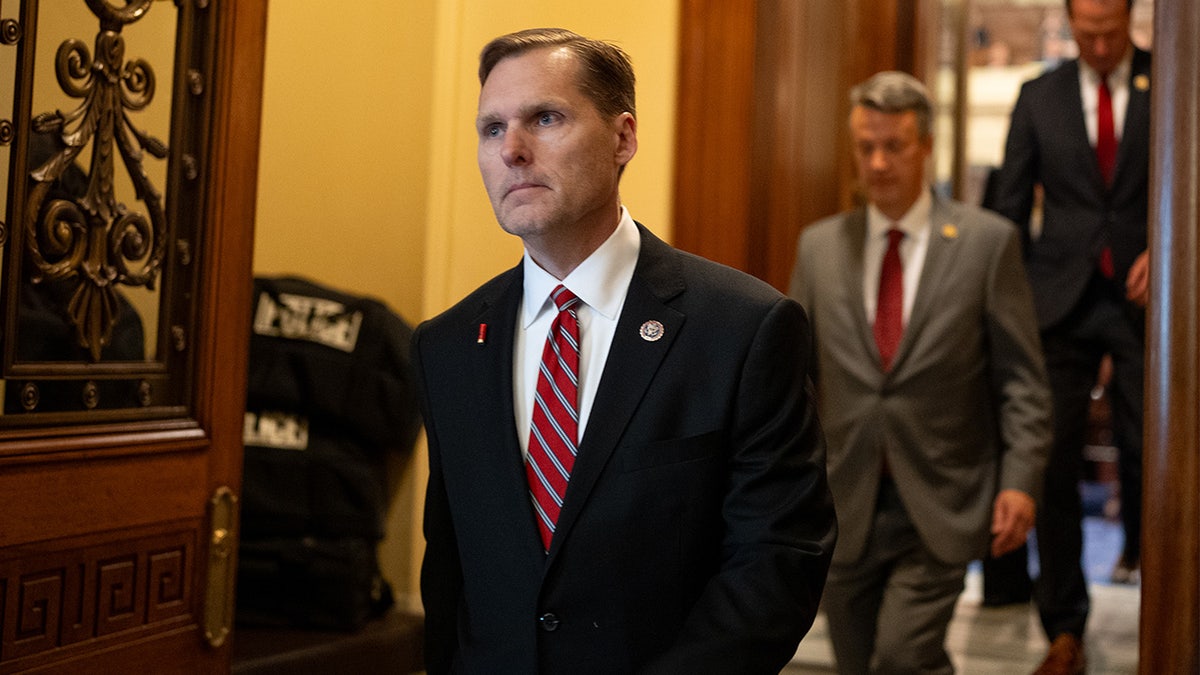
Rep. Michael Guest urged the funding be used for «targeted» enforcement. (Getty Images)
«I think targeted enforcement, making sure that they’re going after the worst of the worst – those individuals who have either committed crimes in the United States or we learn after they released into the interior that they had committed crimes in their country origin, [or] those people who have final orders of removal,» Guest said.
«Those are the people that I believe that ICE needs to be targeting. Those are the people where you see widespread support from the American public that they want to get off the street.»
Rep. Ralph Norman, R-S.C., pointed out that ICE had been asking for that funding for some time.
«Tom Homan has done a tremendous job. He’s indicated for a while he needs more money to keep doing his job. And he’s being fought by everybody, particularly the sanctuary cities, to prevent that from happening,» Norman said. «The least we can do is provide the funding, and we did it.»
And Rep. Derrick Van Orden, R-Wis., said he hoped the increased border and immigration crackdown would help fight the ongoing drug crisis still plaguing the U.S.
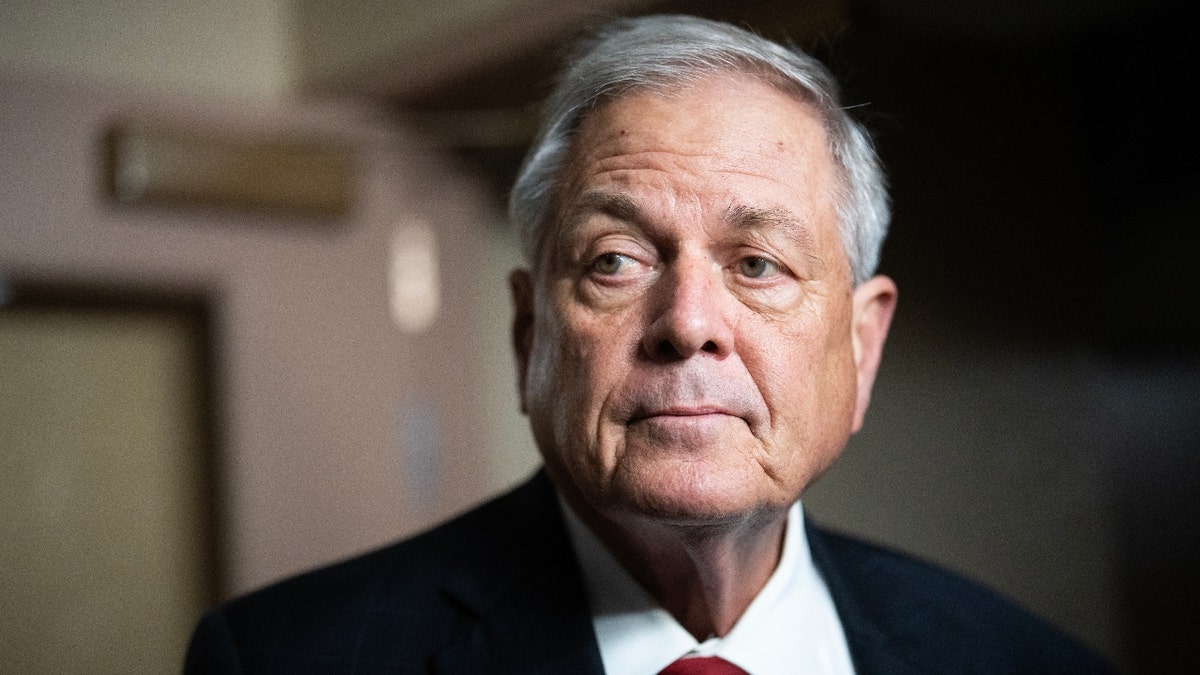
Rep. Ralph Norman said border czar Tom Homan has «done a tremendous job.» (Williams/CQ-Roll Call, Inc)
CLICK HERE TO GET THE FOX NEWS APP
«So in order to have a secured border, in order get rid of these criminal, illegal aliens that are raping and murdering American citizens on the regular, we have to have a very strong immigration enforcement system,» Van Orden said.
Reps. Brandon Gill, R-Texas, and Andrew Clyde, R-Ga., highlighted the funding for Trump’s border wall and for more ICE personnel, respectively.
The bill passed the House earlier this month and was signed into law by Trump on the Fourth of July.
In addition to funding immigration operations, it also extends key parts of Trump’s 2017 Tax Cuts and Jobs Act (TCJA), rolls back some Biden administration-era green energy subsidies, and imposes new work requirements for federal aid.
INTERNACIONAL
Ukraine sees sweeping protests over bill weakening anti-corruption agencies
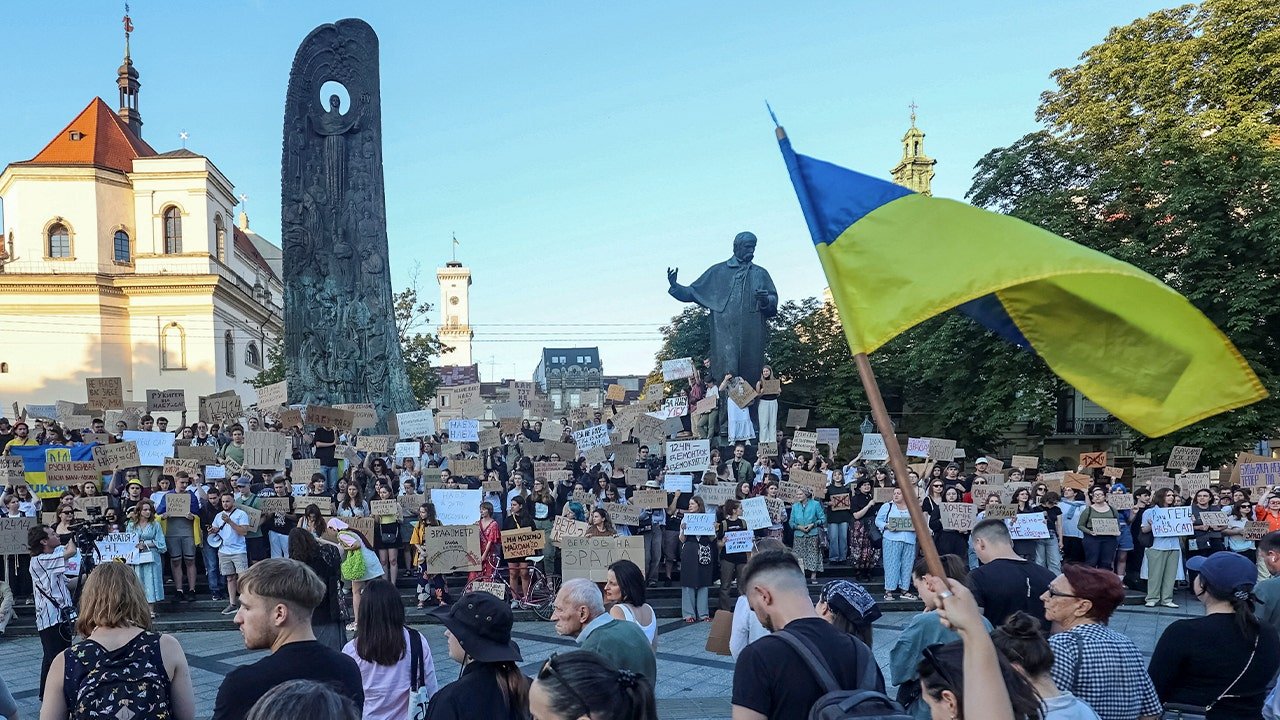
NEWYou can now listen to Fox News articles!
Ukrainians are taking to the streets after the passage of a controversial bill threatening the autonomy of two anti-corruption agencies.
The legislation gives the general prosecutor — who is appointed by the president — increased authority over the country’s National Anti-Corruption Bureau of Ukraine (NABU) and the Specialized Anti-Corruption Prosecutor’s Office (SAPO).
Ukrainian President Volodymyr Zelenskyy is now facing the largest protests since Russia’s 2022 invasion. Demonstrators gathered outside the presidential administration in Kyiv, while other protests took place in smaller cities across the country.
Ukrainians protest in the first wartime rally against a newly passed law, which curbs independence of anti-corruption institutions, amid Russia’s attack on Ukraine, in central Lviv, Ukraine, on July 22, 2025. (REUTERS/Roman Baluk)
UKRAINE’S ZELENSKYY NAMES NEW PRIME MINISTER FOR FIRST TIME SINCE RUSSIA’S WAR BEGAN
The vote came one day after two NABU officials were arrested over alleged ties to Russia, according to Reuters. The outlet said that Ukraine’s domestic security agency, which carried out the arrests, also conducted background checks.
«I gathered all heads of Ukraine’s law enforcement and anti-corruption agencies, along with the Prosecutor General. It was a much-needed meeting — a frank and constructive conversation that truly helps,» Zelenskyy wrote on X. «We all share a common enemy: the Russian occupiers. And defending the Ukrainian state requires a strong enough law enforcement and anti-corruption system — one that ensures a real sense of justice.»
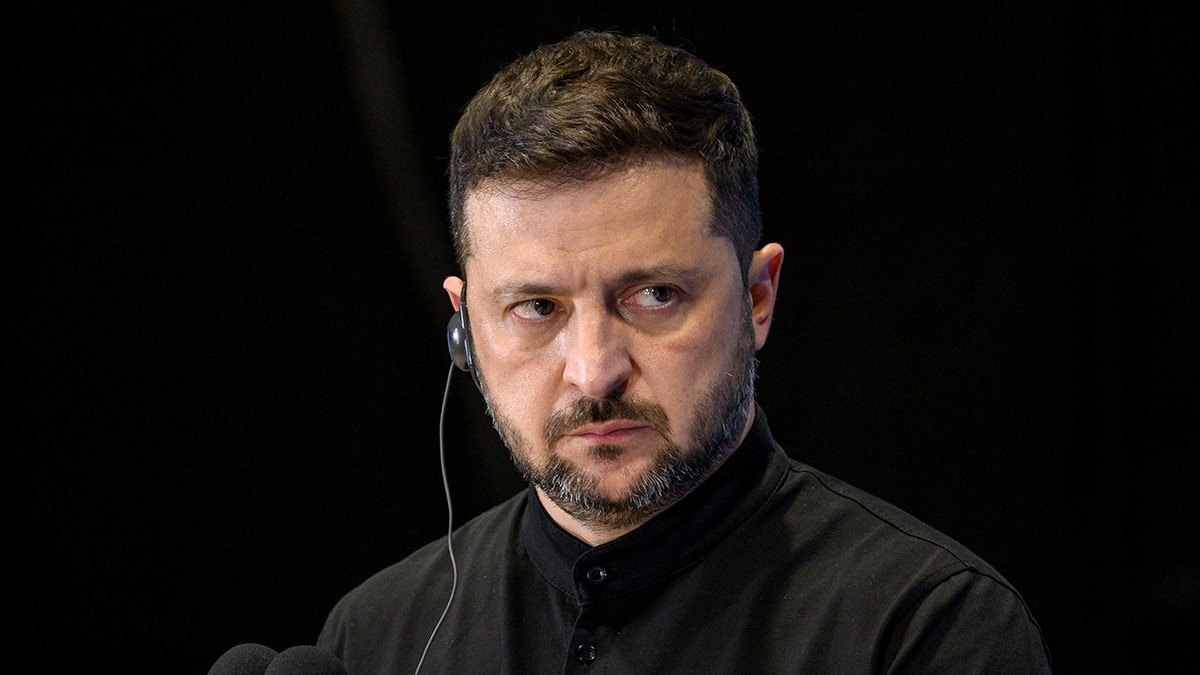
Ukrainian President Volodymyr Zelensky and Italian Prime Minister Giorgia Meloni (not pictured) hold a joint press conference during the Ukraine Recovery Conference 2025 (URC2025) at Roma Convention Center La Nuvola, on July 10, 2025, in Rome, Italy. (Antonio Masiello/Getty Images)
SENATE MOVES TO REIN IN TRUMP ADMINISTRATION’S FLUCTUATING UKRAINE POLICY
«In effect, if this bill becomes law, the head of SAPO will become a nominal figure, while NABU will lose its independence and turn into a subdivision of the prosecutor general’s office,» the agencies said in a joint statement on Telegram, according to the Associated Press.
European Commissioner for Enlargement Marta Kos expressed concern over the vote, saying «the dismantling of key safeguards protecting NABU’s independence is a serious step back.»
Zelenskyy said in another X post, following a meeting that included NABU Director Semen Kryvonos, SAPO Prosecutor Oleksandr Klymenko, Prosecutor General Ruslan Kravchenko, and Head of the Security Service of Ukraine Vasyl Maliuk, that «anti-corruption infrastructure» needs to be «cleared» of «Russian influence.»
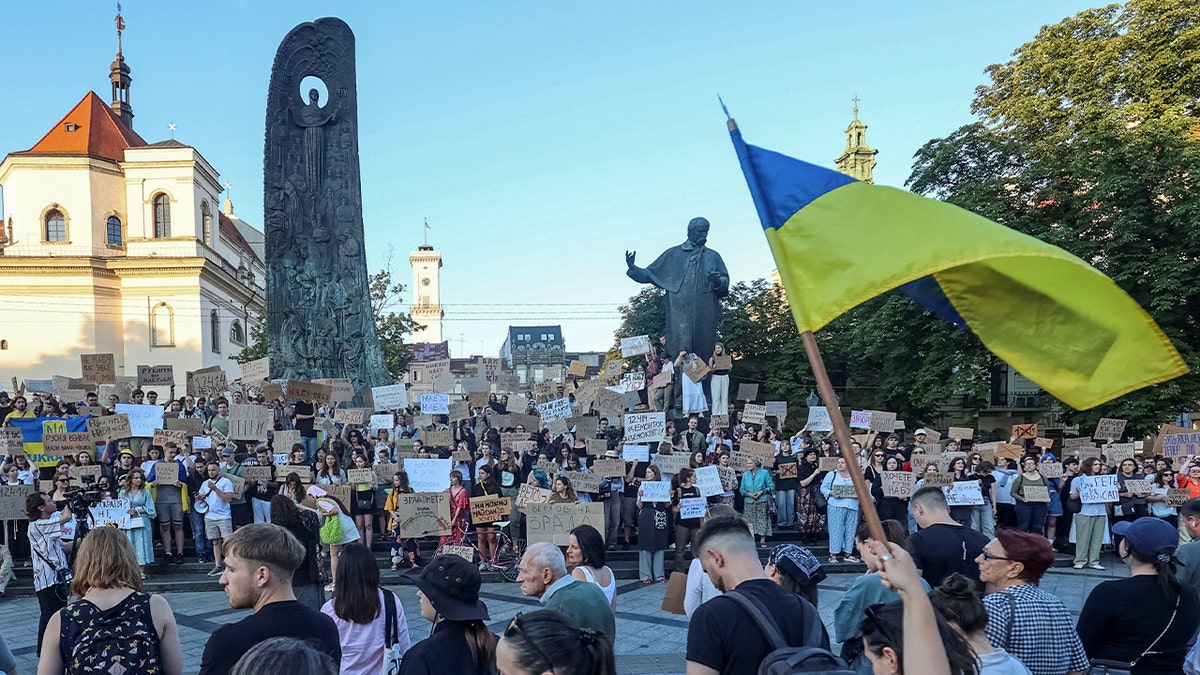
Protesters hold placards during a rally against a law that restricts independence of anti‑corruption institutions on July 22, 2025, in Kyiv, Ukraine. (Ivan Antypenko/Suspilne Ukraine/JSC «UA:PBC»/Global Images Ukraine via Getty Images)
CLICK HERE TO GET THE FOX NEWS APP
The Ukrainian government’s latest move risks endangering its bid to join the European Union, as a crackdown on internal corruption is a requirement. Additionally, it could strain the warming relationship between Zelenskyy and President Donald Trump, who has accused the Ukrainian leader of being a «dictator without elections.»
Both the U.S. and the E.U. have backed activists in Ukraine demanding independent institutions be established and empowered to clean up corruption, according to Axios. However, the pressure dropped significantly after Russia invaded Ukraine.

 POLITICA3 días ago
POLITICA3 días agoExpulsada del Gobierno, Victoria Villarruel empieza a tomar distancia, pero no tiene proyecto político para este año

 POLITICA3 días ago
POLITICA3 días agoLa CGT evalúa adelantar a octubre el recambio de sus autoridades y define una movilización contra Milei

 POLITICA2 días ago
POLITICA2 días ago🗳️ El chamuyo de las elecciones en la Provincia: se postulan, pero no a asumen













